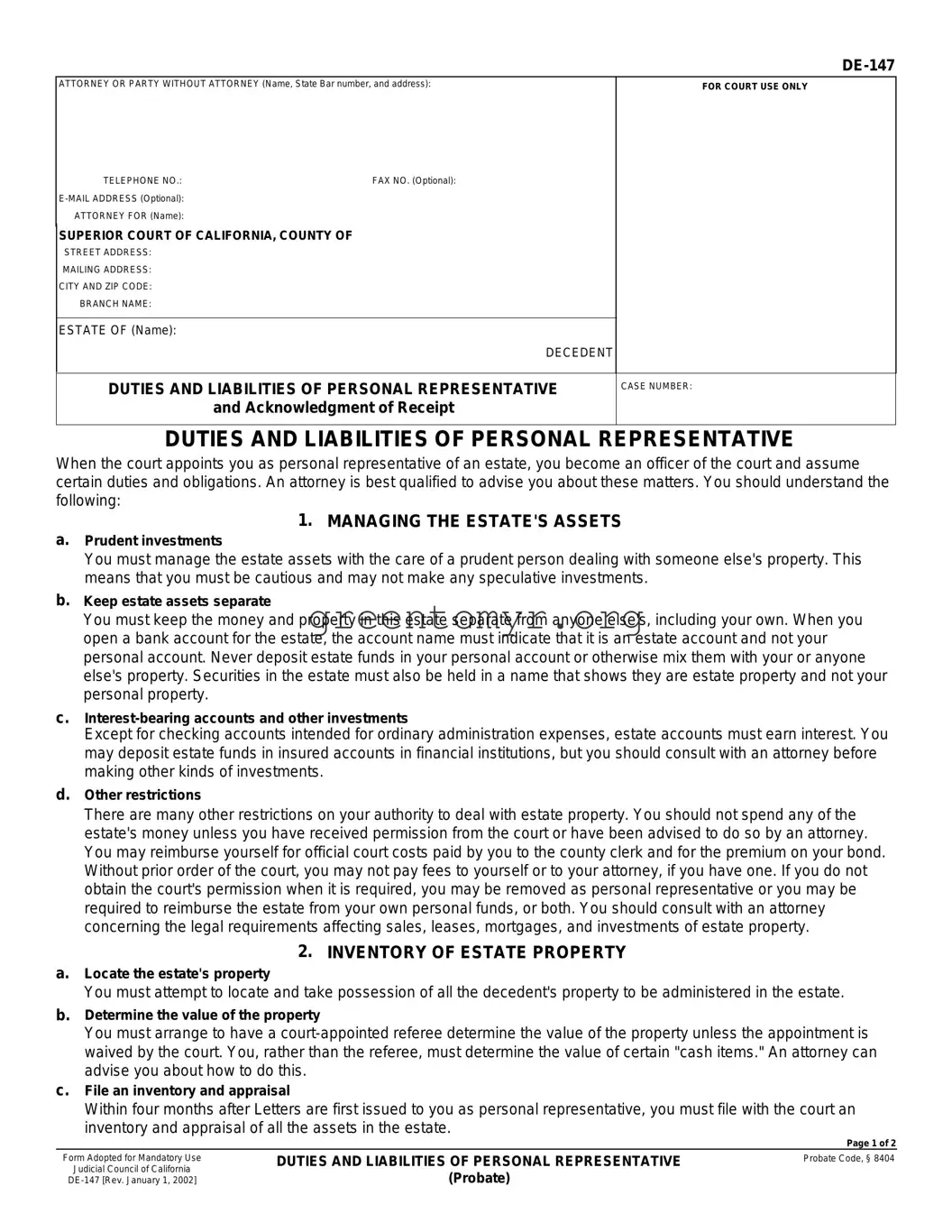DUTIES AND LIABILITIES OF PERSONAL REPRESENTATIVE |
CASE NUMBER: |
and Acknowledgment of Receipt |
|
DUTIES AND LIABILITIES OF PERSONAL REPRESENTATIVE
When the court appoints you as personal representative of an estate, you become an officer of the court and assume certain duties and obligations. An attorney is best qualified to advise you about these matters. You should understand the following:
1. MANAGING THE ESTATE'S ASSETS
a.Prudent investments
You must manage the estate assets with the care of a prudent person dealing with someone else's property. This means that you must be cautious and may not make any speculative investments.
b.Keep estate assets separate
You must keep the money and property in this estate separate from anyone else's, including your own. When you open a bank account for the estate, the account name must indicate that it is an estate account and not your personal account. Never deposit estate funds in your personal account or otherwise mix them with your or anyone else's property. Securities in the estate must also be held in a name that shows they are estate property and not your personal property.
c.Interest-bearing accounts and other investments
Except for checking accounts intended for ordinary administration expenses, estate accounts must earn interest. You may deposit estate funds in insured accounts in financial institutions, but you should consult with an attorney before making other kinds of investments.
d.Other restrictions
There are many other restrictions on your authority to deal with estate property. You should not spend any of the estate's money unless you have received permission from the court or have been advised to do so by an attorney. You may reimburse yourself for official court costs paid by you to the county clerk and for the premium on your bond. Without prior order of the court, you may not pay fees to yourself or to your attorney, if you have one. If you do not obtain the court's permission when it is required, you may be removed as personal representative or you may be required to reimburse the estate from your own personal funds, or both. You should consult with an attorney concerning the legal requirements affecting sales, leases, mortgages, and investments of estate property.
2. INVENTORY OF ESTATE PROPERTY
a.Locate the estate's property
You must attempt to locate and take possession of all the decedent's property to be administered in the estate.
b.Determine the value of the property
You must arrange to have a court-appointed referee determine the value of the property unless the appointment is waived by the court. You, rather than the referee, must determine the value of certain "cash items." An attorney can advise you about how to do this.
c.File an inventory and appraisal
Within four months after Letters are first issued to you as personal representative, you must file with the court an inventory and appraisal of all the assets in the estate.
|
|
Page 1 of 2 |
Form Adopted for Mandatory Use |
DUTIES AND LIABILITIES OF PERSONAL REPRESENTATIVE |
Probate Code, § 8404 |
Judicial Council of California |
(Probate) |
|
DE-147 [Rev. January 1, 2002] |
|


